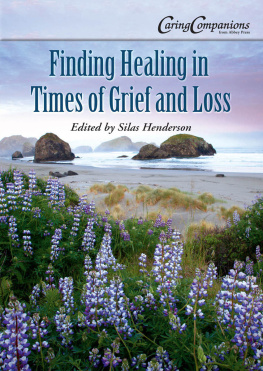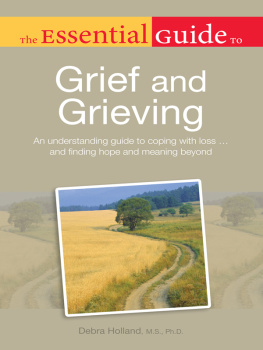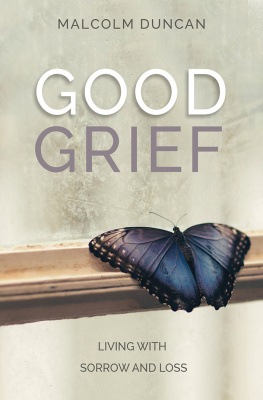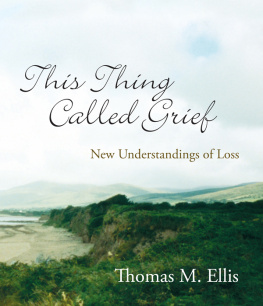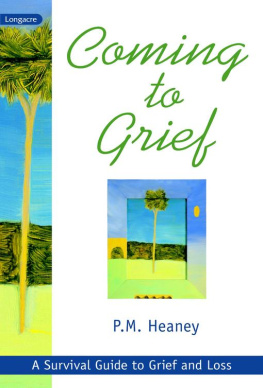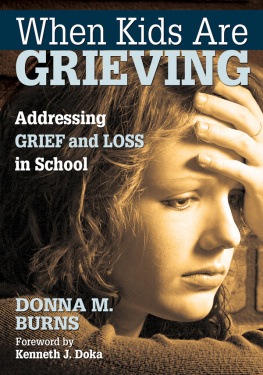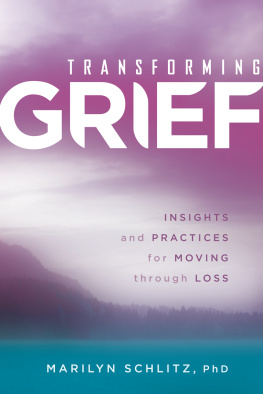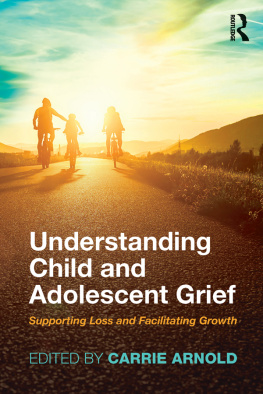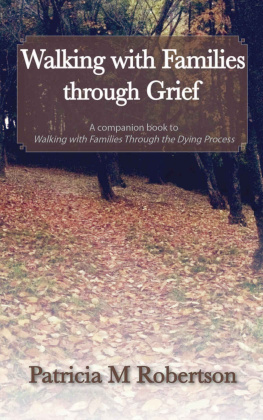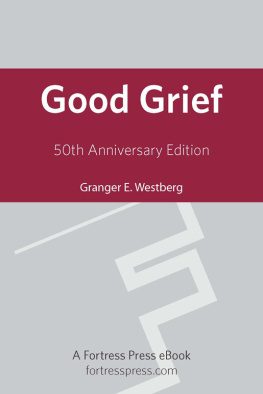Advance Praise for Understanding Loss and Grief for Women
This impressive book is an excellent addition to the existing literature on critical issues facing women who are dealing with loss and grief. This book is extremely helpful in assisting women in transition through their grief to find resolution, peace, and growth through a very difficult time in their lives.
Bill Richardson, MA, Diplomat and Special Envoy, former U.S. Ambassador to the United Nations, former U.S. Secretary of Energy, former two-time Governor of New Mexico, four-time Nobel Peace Prize nominee
Buckingham and Howards book provides an important contribution to the study of bereavement, with an insightful gender-specific perspective on coping with loss and grief. Because of the position women hold in society and their social responsibility, the way they experience loss is unique. By looking at grief through this gendered prism, we have more clarity on how to support women and the people they support. I recommend this book to all who have suffered a loss and those who are close to them.
Michelle A. Williams, ScD, Dean of Faculty, Harvard T.H. Chan School of Public Health
Modern western societies have only recently been willing to talk openly about death and dying, loss of loved ones, palliative care and grieving. This book by Buckingham and Howard offers insights within the historical and gender context as to why this has been so challenging and why it is time to rethink our societal and personal acceptance of death, dying and grief. This is not only important reading for women suffering or facing the loss of a loved one but also for the people around them. The more men that read this book the greater will be their own understanding of the women close to them and the issues they face not only in the sharpened context of grief but also in life generally.
Michael Moore, President, World Federation of Public Health Associations; CEO, Public Health Association of Australia; four-term Minister of Health and Community Care; Adjunct Professor, University of Canberra
There are many mediators of the mourning process, of which gender is an important one. Gender responses to loss are fashioned and shaped both by culture and history. In this book, Buckingham and Howard lead the reader to think about womens grief and how gender affects their response to loss, not only by death but also to other life losses such as divorce, health changes, and retirement. This book provides a perspective for both men and women to understand how women integrate loss into their lives as we emerge into a postmodern age.
J. William Worden, PhD, ABPP, clinical psychologist, author of Grief Counseling & Grief Therapy: A Handbook for the Mental Health Practitioner
Robert Buckingham and Peggy Howard have written an important book that informs our understanding of womens loss and grief, and points to proactive approaches to healing.
Peter MacKinnon, QC, Order of Canada; Past President, University of Saskatchewan, Past Interim President, Athabasca University
As one of the founders of Hospice in the United States, Dr. Buckingham, along with his co-author, Dr. Peggy Howard, bring a fresh and needed perspective to the literature, which broadens the readers understanding of the universal experience of loss and grief. The attention given to the social construction of grief viewed from a cultural perspective gives an insightful lens through which to view changing roles of women today and differing responses to loss and grief of significant relationships and social identities. The case studies presented illustrate well the journey of grief. A must read for health professionals and all of us who inevitably travel this road.
Suzanne Selig, PhD, MPH, MSW, Director, Public Health and Health Sciences, University of Michigan, Flint
Grief has many aspects and many faces. The inconsolable loss of a loved one casts a very long shadow on the life of those left behind. While grief does cover the gamut of the human experience, there are some gender-specific reactions and needs that are often overlooked. Understanding Loss and Grief for Women: A New Perspective is a fresh look at understanding the impact of loss and grief of women in our culture. While grief is complicated for everyone, the unique role women have in dealing with their own losses, as well as those of their loved ones, puts additional pressures on women to cope quickly and to help others in need. I recommend this book without hesitation. As a clinician who has been working with grief and loss for many years, this book is a must.
Donald Schumacher, PsyD, President and CEO, National Hospice and Palliative Care Organization, United States
To be human is to experience loss, which occurs in many forms. For women responding to or preparing for loss, and for anyone desiring to support others coping with loss, this thoughtful book will help the reader understand womens individual responses to grief, appreciate their personal resiliency and have hope for eventual recovery. Buckingham and Howard compellingly present the grieving process for women as a healthy, transformational opportunity. From the earliest days of Hospice care in the US, Robert Buckingham has effectively addressed the most difficult topics in thanatology. Now, he and co-author Peggy Howard bring to light a long-neglected aspect of the discussion in this engaging and important book.
William G. Faraclas, DrPH, Professor of Public Health, Department of Public Health, Southern Connecticut State University
Public Health has to recognize and study all the subjects which can affect the well-being of vulnerable communities. If we better understand loss and grief for women, we will be better equipped to help them. The authors analysis is undoubtedly a precious contribution.
Laurent Chambeau, MD, Dean, EHESP French School of Public Health, France
Everyone hugs you when your husband dies. Very few hug you when you get a divorce, says a bereaved woman. Yet, undeniably, both are experiences of loss that may lead to profound grief. Robert Buckingham and Peggy Howard have written an eloquent and thoughtful text that gives surprising insights into the history, psychology, and social complexities of womens experiences of various kinds of grief. While loss is levitas that lessens life, grief is gravitas that makes it heavier. Buckingham and Howard show how loss, and the grief it causes, may seriously unsettle but they also may deepen and strengthen us as we open to the fullness of our personal being.
Max Van Manen, PhD, EdD (Hon.), Professor Emeritus, University of Alberta, Adjunct Professor, University of Victoria
The authors have deftly tackled a complex but very important subject. Should be required reading for all primary and palliative care doctors.
Robert S. Weiner, MD, Medical Director, Kauai Hospice
This book is relevant to women and men alike in that it details the historical and socio-structural account of our post-modern societies. The key message, that grief is largely determined by cultural and gender specific norms, offers a broader understanding of the complexity and individuality of grief and mourning, as well as the intergenerational effects of grief suppression. The authors offer advice for healthy grieving as a way to accept a new life resulting from loss.
Ulrich Laaser, Dr. Med, DTM&H, MPH, Past President of the World Federation of Public Health Associations, the Association of Schools of Public Health in the European Region, and the German Association for Health Sciences and Public Health
Understanding Loss and Grief for Women: A New Perspective on Their Pain and Healing makes a timely and important contribution to our ways of understanding and engaging grief. Unpacking social constructs and expectations of women and grief is critical to deepening our abilities to engage grief, our own and/or of those we work with. Through deconstructing our current knowledge and providing interventions, Drs. Buckingham and Howard have developed an excellent tool to assist women with moving through our grief more wholly, increasing the possibilities for healing and growth.
Next page

